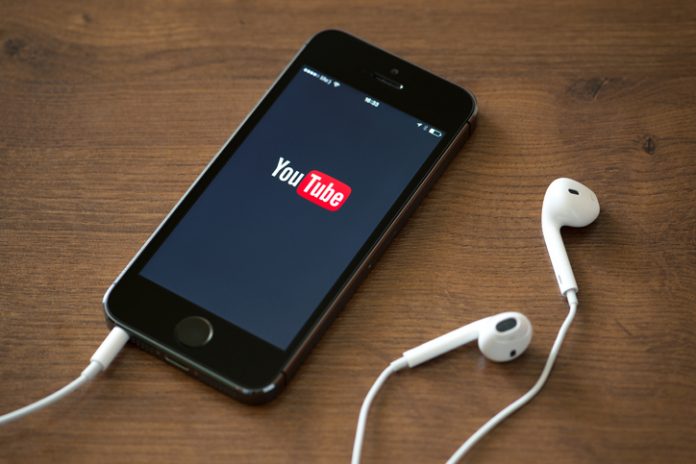Since its creation in 2005, Youtube has successfully catapulted its way into mainstream social media through its creator-centred platform and innovative visual delivery of content. More than a decade later, with millions of creators funded and a fair share of ad policy changes, is the golden age of Youtube over?
Introduction
In 2021, Youtube emerged as the most popular social media platform in the U.S., surpassing Facebook by a long mile. A survey done by Pew Research stated that 81% of people residing in the United States watch Youtube, a stark contrast from the 69% of people who use Facebook. These numbers go to show just how much has changed over the years in favour of the video streaming platform.
Youtube started in 2005 as a wonderfully weird and fun medium of sharing videos online, no matter the content. Instead of your run of the mill late night tv show reruns or watching Jimmy Kimmel Live for the nth time, you could go on the site and watch more content catered to your interests.
Unfortunately, it’s not as simple as that anymore.
Over the years, Youtube has seemed to stray from its original idea of a user-centric model of promoting original content to positioning itself to first and foremost, advertisers and press. The bedrock of Youtube is founded on being the middle man for creators to flesh out media that differentiates itself from traditional streaming services like Netflix and Hulu.
That being said, most of Youtube’s recent updates have left creators confused about their original brand ethos. Due to the complex Youtube algorithm, creators who were then supported by Youtube find themselves at a standstill of feeling abandoned when their videos get buried in search results, don’t appear on trending pages, or are quietly being demonetized.
The pitch deck of the company has been seen to favour more household celebrity names who have long established themselves apart from Youtube, gradually shifting from creative amateurs who laid the groundwork for the platform’s success now. The creators who do play into the taciturn algorithm have found themselves regretting their decisions just as quickly.
As YouTube battles misinformation catastrophes and discovers new ways people are abusing its system, the company is shifting toward more commercial, advertiser-friendly content almost at the expense of its creators.
A change in content direction
Some would argue this downfall was inevitable and muse it as a long time coming event given the company’s origin story, as miscommunications between Youtube and its users who have funnelled money back into the platform has been going on for quite some time. These issues range from disputes on ad revenue, copyright problems, even recommendation models.
When Youtube was bought by Google in 2016, the platform had to do a deep dive into their archives to properly address and manage one of the overarching problems that have plagued their website: piracy.
Because of its relatively user-friendly interface, it was easy to watch and record practically anything under its model. This led renowned media and production studios, as well as record labels, to take up arms and confront the company directly.
Because of the rampant piracy that almost led to the companies extinction, under Google, Youtube had to shift its focus back to what it set out for in the first place: original content.
The rising tension between Youtube and creators
This change brought along with it the subculture we are now all too familiar with, the creator culture. This Youtube-originated culture, from its earliest days, didn’t necessarily fit into the already established mold of what could be branded as a “celebrity”. This idea of normal people making a name for themselves was fresh, and Youtube capitalized on its mundane to their advantage.
It allowed for names like Jenna Marbles and PewDiePie to catapult themselves from regular American citizens to becoming one of the richest YouTubersits in a matter of years. Each of these creators were driven to create various forms of “contentertainment” that wasn’t happening on the traditional mediums.
Through their determination of bringing more people into the platform through their unique videos, Youtube has successfully integrated and adapted its new brand ethos into its model.
Making money won’t be as easy
Since then, Youtube has continuously innovated and kept pace with the changing times. There have been good updates, just as there have been questionable ones. Just recently, Youtube has once again raised some eyebrows with its updated monetisation policy.
Effective June 1, 2021, Youtube will allow monetisation of every form of content, even the one not under their exclusive Youtube Partner Programme (YPP), without parting its money with creators who have a smaller viewership.
This update will greatly impact the monetisation of the YPP creators with viewers in the US, as the revenues will be considered as royalties from the tax perspective. If they fail to share the tax information by May 31, Google may be required to subtract up to 24% of the total earnings as tax, the company stated.
This will be a major financial blow to micro-creators, as much as it is for bigger ones. Digital marketing experts feel that the creators will face a painful pinch of these monetisation policies on their average earnings.
It has been for this reason small creators intentionally don’t align themselves with the Youtube Partner Program, because they feel placing ads can potentially drive viewers away. The return they will get, as this new policy suggests, will be just as insignificant. Some YouTubers also dabble in online gaming to make extra income through joker123.
The update will not only disproportionately affect creators, but non-profit channels that won’t reap the benefits from the ads as well. While some of the creators will have revenue hassles to smooth over, it’s the advertisers who seem to gain the most from these new set of rules when implemented properly.
About the Author
Pamela Rhyan is a writer for The European Business Review. She is dedicated to crafting timely blog pieces about business acumen, changing leadership dynamics, emerging finance and technology trends, global breakthroughs and how these spaces intersect from a millennial’s perspective. She also works as an editor and content strategist to the sister publications of The European Business Review.


































